Depression in the Elderly: Major Signs, Symptoms, and Causes
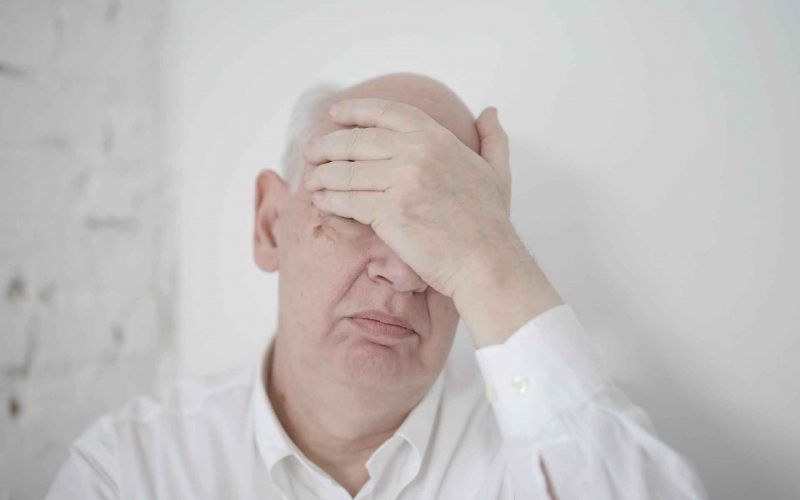
Table of Contents
Depression in the elderly is not uncommon. It can happen to even the seemingly most fit and healthy older adults. You can help by observing the elderly depression symptoms and understanding the causes of depression in older adults. Here’s all you need to know to get started to help an elderly person with depression. ~ Ed.
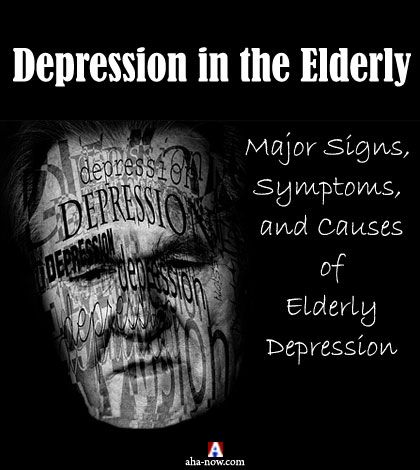
Have you ever noticed an elderly person with depression?
If you observed, you’ll see that such people lose interest in the activities they once enjoyed, or feel helpless and hopeless.
That’s pretty sad for us to see, so you can imagine what they must be undergoing with depression in their lives at this age!
Such seniors undergoing depression could be your parents and grandparents, or your neighbor, family, or friend. The depression in old age can affect anyone you know. It is also known as Geriatric Depression.
I feel so overwhelmed hearing about such cases and people. These elderly people face hardship all their life, yet have to undergo suffering when they ought to be reaping the fruits of their labor, relaxing, and enjoying life.
Though I don’t want to scare you, but it could also happen to us when we grow old, if we’re lucky enough to be alive till then. The truth is that life is so uncertain, we don’t know what tomorrow holds for us.
Often it’s the changes that come later in the lives like retirement, isolation, medical problems, or the death of loved ones that leads to depression in elderly.
I know a few elderly people who are undergoing depression and suffering in their lives, and thought to write about it today.
Before we go further, I’d love you to watch this very short video from the World Health Organization (WHO) –
Let’s talk about depression – focus on older people | WHO
“The world is full of suffering; it is also full of overcoming it.”
Helen Keller
Depression in the Elderly
Depression is the most common mental condition that can be treated. It is a medical illness where a person has persistent feelings of sadness, discouragement, and a lack of self-worth.
Depression in elderly is a widespread problem, though contradictorily, it’s one of the most overlooked.
The depression in elderly people presently affects nearly 7 million Americans aged 65 and older every year. And this figure is going to rise higher as the population ages.
But, can you believe that out of them only 10% receive treatment for it. Isn’t this fact surprisingly alarming?
That’s because sometimes physician don’t recognize the signs and symptoms of depression. Or because the seniors don’t go for medical checkups believing that feeling low is part of aging.
Another reason is that the elderly display the depression symptoms differently. Their depression is sometimes confused with the effects of various illnesses and the medicines used to treat them.
Depression in the elderly often occurs along with other medical disabilities and illnesses, and lasts longer. It increases their risk of cardiac diseases and death from other illnesses.
This state of sadness in seniors reduces their ability to rehabilitate. Such depression also increases the risk of suicide, which in people of age 80 to 84 is more than twice that of other age groups.
Risk Factors of Depression in Older Adults
As our elders grow older, they face many life changes that can put them at a risk for depression. Such risk factors include:
- Being single, unmarried, divorced, or widowed.
- Older women are more at risk because biological factors like hormonal changes make them more vulnerable than men. Also, the stresses of caring for children or an ill loved one, and maintaining relationships falls on women more.
- Stressful life events and situations.
- Lack of supportive family, friends, and social network.
Sometimes many elders don’t admit to feeling depressed because of the fear that they will be seen as “mad” or “weak”.
Some feel that nothing can be done about it now, or they don’t admit to being depressed because they don’t want to be a burden on the family.
“Depression is only reached the instant your mind rejects the most basic of instincts – the need to survive at all costs.”
Demarcole
Recognizing the Signs and Symptoms of Depression in the Elderly
As the elderly often have physical illnesses, it’s tough to know whether some symptoms are due to the illness or depression.
You can recognize the signs and symptoms of depression in the elderly by noticing the following:
Keep a check whether your seniors are –
- Fatigued.
- Irritable.
- Sad.
- Having disturbed sleep, like problem in falling or staying asleep. Or are they oversleeping, or sleeping during the daytime.
- Abandoning or losing interest in their hobbies or other pastimes they enjoyed.
- Losing their appetite or experiencing weight loss.
- Isolated or socially withdrawing by reluctant to be with family, friends, or engage in activities, or leave home.
- Not taking care of the home.
- Not bathing, shaving, or changing. Their clothes might be dirty and wrinkled, and sometimes they might even smell of urine and stool.
- Not taking prescribed medicines or don’t take them correctly.
- Experiencing memory problems and confusion.
- Facing delusions and hallucinations.
- Feeling worthless, or worrying about being a burden. Or having feelings of guilt and self-blame.
- Drinking too much alcohol or using other drugs.
- Thinking about suicide or attempt it, or have thoughts about death.
Sometimes depression in older adults isn’t due to sadness. Instead, it’s due to lack of energy, low motivation, memory problems, or some physical or health problems.
Sometimes the initial signs of depression in elderly can be a constant worry about having a physical illness, even when the doctor can’t really find anything wrong with them.
Thus, it’s important to get your seniors evaluated and treated, even if the depression is mild. Get to know the causes of their depression and help them out.
“You largely constructed your depression. It wasn’t given to you. Therefore, you can deconstruct it.”
Albert Ellis
Causes of Depression In Elderly
When we are depressed, we often blame ourselves because depression makes us see things negatively. We may start to blame ourselves for things we aren’t responsible for, though that’s not always the case.
The many causes of depression in elderly seniors are:
Health Problems
Persistent or severe pain, illness and disability, cognitive decline, damage to the body due to surgery, or illness like amputation and cancer surgery can cause depression.
Other health problems like stroke, hypertension, diabetes, cancer, dementia, and atrial fibrillation further increase the risk of depression.
Even Parkinson’s diseases, thyroid disorders, vitamin B12 deficiency, lupus, multiple sclerosis, and Alzheimer’s diseases can either directly or psychologically result in depression.
Loneliness and Isolation
If an elder is living alone, or has decreased mobility due to illness or loss of driving privileges, or isn’t able to drive – it can result in depression.
Sometimes when they have to adapt to or move to a new home or an apartment, it can depress them. Or when their children and grandchildren move away to a different place, it leaves them feeling lonely and sad.
Also, dwindling social circle due to deaths or relocation can make them feel alone and depressed.
Fears
Depression in elderly citizens can occur due to anxiety over health issues or financial problems. Even the fear of death or dying can cause depression.
Bereavements
Death of family members, friends, pets, or the loss of a partner or spouse, can result in the elders feeling depressed and sad.
I’ve often noticed that if one spouse dies, the one left also passes away sooner than usual. I guess it’s the attachment they have of being together for so long that makes it happen.
Reduced Sense of Purpose
When there is a loss of identity or feeling of aimlessness due to retirement, or due to physical limitations on activities, the depression sets in.
Intake of Certain Medicines
Intake of certain medicines or a combination of certain medications can induce depression in elders. These include sleeping pills, painkillers, estrogen, beta-blockers, tranquilizers, calcium-channel blockers and steroids.
Also included are drugs for the heart containing reserpine, drugs for arthritis, blood pressure medications, and high-cholesterol drugs.
If an elder feels depressed after taking new medication, they should talk to their doctor. He or she might reduce the dose or switch to a better alternative that doesn’t impact their mood.
Alcohol
Sometimes the elders tend to use alcohol to deal with emotional or physical pain. It also helps to keep their mind off an illness or makes them feel less lonely.
Some even drink at night to get sleep. When my Dad lost my Mom, he took to drinking to get sleep, though he overcame this habit long back and has left drinking altogether now. But yes, that was a tough time for him to deal with such a major loss in his life.
Alcohol might make you feel good at that moment or for a short time, but it can cause problems later. It leads to anxiety, depression, irritability, and impairs your brain function.
It reacts negatively with numerous medications, including antidepressants, and it impairs the quality of your sleep.
Besides these main causes, sometimes even the family history of major depressive disorder can be a reason.
Often people think that because depression in elderly individuals has set in – they aren’t capable of learning or doing anything new.
However, the human brain never stops changing and seniors are just as capable as others to learn new things or adapt to changes.
They can easily overcome depression by adapting to change. Or by finding new things to enjoy that will keep them active, and by staying physically and socially active.
“Many people think that depression is something you just have to live with when you get older, but it’s not.”
Tom Bosley
Overcoming Depression in the Elderly
If depression in elderly citizens is due to health problems, there are many treatment options available.
These include medicine, counseling or psychotherapy, electroconvulsive therapy, herbal remedies, natural supplements, or even a combination of these treatments.
However, if depression in elderly people is due to loneliness or any of the other causes mentioned above then there are other ways to overcome it.
You can help overcome depression in elderly seniors by helping them:
- Connect with others, be it family or friends. You can even invite them to go out with you and enjoy together.
- Keep physically active by exercise, as it boosts the mood.
- Get enough sleep and rest.
- Maintain a healthy diet and lifestyle.
- Take part in activities they enjoy. Or participate in preparing a meal or playing games with them.
- Take care of a pet, or even nurture a plant or garden.
- Learn a new skill.
- Volunteer their time to do something constructive.
- By NOT doing things for them because it reinforces their perception that they are incapable and worthless.
- Be a part of your family, especially if they are your parents, grandparents, or loved ones. And learn to respect, value, and love them for who they are.
- Laugh with them, and share your time with them – they need that most of all.
Here’s another video that can give you more insight into the life of the elderly going through and after depression.
News Report on Elderly Depression
Wrapping Up
All I can say from my personal experience is that we should listen to all elders with compassion and patience. More so, if they are within your family like your grandparents or parents.
Never force or push to talk, or do things they don’t like doing. Reassure them as much as you can when they seem troubled. It’s important to hear them out and honor their emotions.
I feel we should offer them hope instead of criticizing their feelings. Yes, your time is precious but so was theirs that they spent on you. We owe them that much now, don’t we?
“Too often we underestimate the power of a touch, a smile, a kind word, a listening ear, an honest compliment, or the smallest act of caring, all of which have the potential to turn a life around.”
Leo Buscaglia
Over to you
How do you or would you deal with the condition of depression in the elderly, especially if they are your loved ones? Share your thoughts below in the comments.





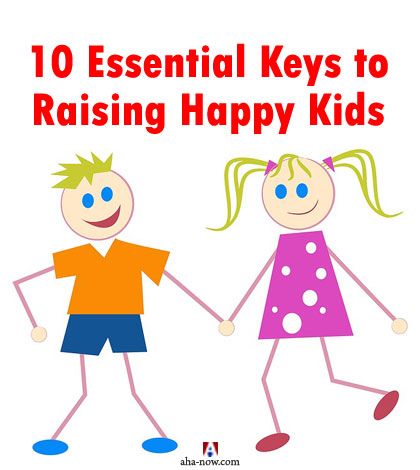

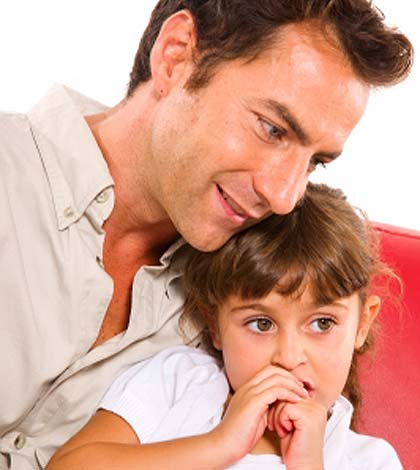
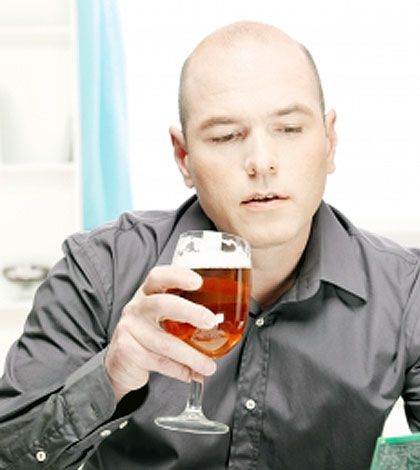
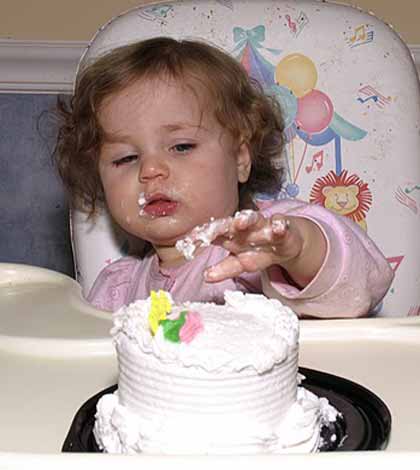
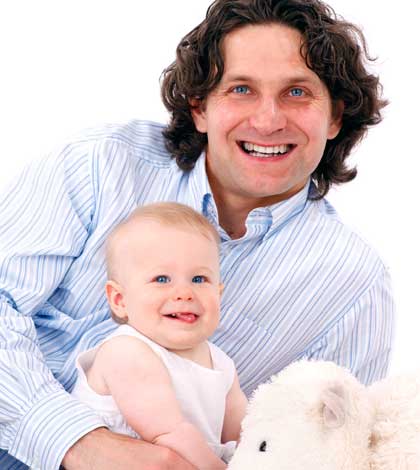
Great and informative article. I got inspired by reading the article and totaly agree because most of our elders suffer depression in this stage of life , so we should proper care them and will be fine to keep them bussy.
Thanking you for writing such a valuable post.
Great read Harleena. Well written. We all have responsibilities to know how our family feels, especially elderly people or our parents itself suffering from depression. Usually, they don’t open up or talk about it. It is much dangerous to the overall health of elderly people. Talking, caring, asking, and loving them can lessen depression.
Hii Mam..
Such a great article. These days I am a little bit depressed. My symptoms are totally relatable with your points. Just feeling relaxed by reading your article.
Thanks for sharing such insights. Great work. Much appreciated.
Superb Harleena Mam, your writing style is amazing. I use to deal with anxiety for the last 15 days as I was Looking for a spiritual Guru or as a Blog that can help me but after reading your article I really feel relaxed.Thanks and Keep Posting
My father is diagnosed with severe depression, last month…i due to some commitments was not able to talk to him..and came to know about it yesterday. My father will be retiring next year. Even his retirement plans were also ready…why is he depressed? It is hard to believe….and I m really sad I couldn’t talk to my parents for a month. How to talk to my mother and father about it….hard to talk to them….how can I help..please suggest some ways….now he is diagnosed with stones of 4.8 mm in kidney and swelling in liver ….so he is not eating anything and extremely weak….my father is a non drinker and non smoker and eat very balanced diet without sugar and very less oil. He is really fit and I am not able to accept it. Kindly guide me how can I help to get him back healthy as he was earlier.
Welcome to the blog Sunita 🙂
I’m sorry to hear the state of your father. As for the possible causes, you’ve already read them in this post. Only a medical professional, a doctor or a psychologist , will be best able to discern the real cause.
From your comment, I feel it could also be a possibility that he is not comfortable with the fact that he is retiring. Whatever it is, he needs the love and support of all the family members, and needs to take good care of his health, both physical and mental.
I’d suggest to open and improve the communication channels with your parents – this is the age when they need you the most. Regarding the kidney stones and swelling in liver, its best to seek a medical specialist’s opinion. These could happen to anyone and can also be cured with medications if in early stages.
Depression is not without any reasons. Whatever they may be, even if they seem insignificant to you, they may be enough to bother your father a lot. Fears are our worst enemy, and only love can woo it away.
I hope this helps and that you will take some action soon. Thanks for stopping by and sharing your experiences with us. 🙂
BTW – Do add a gravatar or profile picture so we know who we are talking to – just a friendly suggestion 🙂
Thanks a lot for your suggestions.What
and how to talk to dad…
Will I increase his tensions…
Your blog is really a great help….and yes reading the experiences of all new friends is great help…..
Thanks and have a great day….
I definitely can see this being an issue. We’re not there yet with either of our parents, but I know some of my friends have made comments about their own parents. This is an important read, because it truly doesn’t need to be this way, and we owe it to our elderly to help them through this time of life. The connection part is huge!
Hi Michelle,
It certainly is and we certainly cannot ignore this fact, isn’t it? 🙂
I think there are so many reasons why depression occurs, where our elders are concerned that at times it becomes tough to decipher it all out. But if we can understand the reason behind it, we can help them and ourselves as well.
Thanks for stopping by and sharing your views with us 🙂
My grand father was in depression, i care a lot of my grand father, On my saying he join laughing club and he start recovering from it. You can come out of Depression in so many way ,all you need keep trying
Welcome to the blog Rohit!
Sorry to hear about your grandfather, though I’m glad you are there to take care of him, which is the way it should be too. Ah..laughing clubs are a nice way to overcome depression and mix around with other elders too. I agree with you, all you need to do is make up your mind, and you can easily overcome depression, whether in elderly people or in ourselves too – isn’t it?
Thanks for stopping by and contributing to the post 🙂
BTW – Why don’t you grab yourself a Gravatar so that we know who we are talking to – just a friendly suggestion 🙂
Hi Harleena,
What I feel about the depression in elderly people is the loneliness. And now, with the trends of nuclear families, there is no one to look after and take care of then. NO one is their to whom they can share their feeling or problems.
Welcome to the blog Jay!
I agree with you there, because loneliness can really pull you down. You are right, people in nuclear families have their own life and families to take care of, which often leaves the elders alone, and this is a major cause of depression in elderly people.
Just like you and I need people around us to share our feelings and thoughts, so do the elders – and they need more support and more people around them in the fag end of their years. I hope people realize this fact and take some cues from this post and are there for their elders.
Thanks for stopping by and sharing your views 🙂
Seniors who stay active and occupied are very happy with their lives. One does not need to be a senior to have depression. Those who maintain a positive attitude may never suffer depression in their lives.
Absolutely Lili!
If our seniors find ways to keep themselves occupied, there will be no way that they would have time to think about anything, which is often the cause for depression in most cases. There is no age for getting depressed, just as you mentioned. The key is to have a positive mindset to remain happy – in all circumstances.
Thanks for your contribution. 🙂
Hi Harleena,
Thanks for the emotional and wonderful subject.
I am sure you have traveled all the psychological corners of senior people feelings and analyzed very well in deep. I like the way you have describe the crucial things with clear and emotional effect and really very nice.
Yes. Indeed..this is always a growing issue, where it requires more attention from their loved once.
When people become older its quite obvious that they fall on fear, loneliness, lack of memory, health problems, medical assistance and so on. Their routine life will become very monotonous and some time makes them to feel very boring on everything.
The first and important remedy is, kids should always show up their Respect, closeness,love and affection to their parents/grand parents and importantly at this age. When we grow up our kids, we should inject them about the importance of elders, respect and their bonding needs for our family. This should seed at a right time as school eduction.
With current busy life, combined family structure almost diluted and meeting our own parents and grand parents itself happening as and when really when time permits.s
One important thing, if you little magnify, today’s 70+ age elders never seen their world become this fast and multi-cultured, when they were young at 30’s. There are many dramatic changes has happened at past 4 decades around the planet, and accommodating to the new world with out their kids closeness is really very difficult at this elderly age for many parents. Indeed they feel so isolated and parted. True.
Having an older generation at home is kind of bless and there is no technology replacement for this space and should not be. Respect, Love your parents and show up your close affection with them and to senior people is the only remedy for this.
Thanks for the nice article.
Glad you liked the topic Manickam!
Yes, it is an emotional and touching subject because it somewhere or the other relates to all of us I think.
I do have a lot of seniors in my family whom I value and respect a great deal, so I can well relate to their feelings and all that they undergo. And depression in elderly people is also something that I’m sure like me, you too might have seen, either in your own family or you might know someone undergoing it.
I strongly feel that we play a major role in making our seniors happy, which would on it’s own remove the depression they have in their lives – to quite some extent, provided it’s not due to any medical reason. Yes, once they retire or stop working and doing things that they have done earlier, life becomes rather monotonous and boring for them. They really don’t have anything to look forward to in their lives, unless they make an effort to reach out and connect or take up some activities to keep themselves involved.
I guess we need to place ourselves in their shoes and feel what they feel. And yes, if we instill the values in our kid’s when they are young – it would show positive results when we age too – isn’t it?
Agreed that our lives are hectic and we are always on the run, but weren’t our parents or elders lives also busy? Yet they used to take out time for us when we were young, which makes me wonder as to why we can’t do the same for them now – when they need it most. Yes indeed, the decades have just flown and the generation gap is quite a bit for our elders to cope up with, though some of them prefer to keep up to date with the latest and do well for themselves too.
I guess it all depends on their state of mind. I’ve often seen elders even in their 80’s behave like they are in their 30’s and vice versa. So, if they want to learn or be a part, they can, though from our side the least we can do is help them or uplift them to feel good about themselves. It sure is a blessing to have elders at home. 🙂
Thanks for stopping by and adding more value to the post. 🙂
Hi Harleena,
This is my first time here on your blog. I came via Debbie’s. This post of yours about depression in elderly people really surprised me. I never thought that elderly people would become depressed. I always thought that they are usually happy because they are seniors and they do not have to work anymore, and they have their grandkids to play with them.
However, I guess you’re right at one angle of an elderly’s life, there are those who still work even if they are very old and their body is not as strong as it was before. I agree there are those who are no longer visited by their children and grandchildren and they become alone and depressed with no one to talk to.
I remember my grandma who was so old that she did not remember my mom’s name or our names at all, which made me sad at that time. She’s in heaven now. I sure hope that when I am a senior in the next 3 to 4 decades, my siblings and my future family would take good care of me.
Thanks for sharing with us the signs when a senior is depressed. I will keep a lookout of these by the time my mom would reach over 60 years old.
Welcome to the blog Felicia!
I guess we need to thank Debbie for connecting us here. 🙂
Depression in elderly people can occur in them or even happen to you and me. I think it all depends on our state of mind and the circumstances we are undergoing at a given moment – isn’t it? Yes, elders don’t have to work any more, which is a major reason for their depression as they have been working lifelong, and now they have nothing to do, which is where boredom sets in. And if they don’t have their loved ones with them, then they are rather lonely – thus, there are no grandkid’s to play with either.
Yes indeed, being alone and not active are the main reasons for depression to set in also, and this fact we as kid’s need to understand more than anyone else. Sorry to hear about your grandma, though I wonder if it was depression she was suffering from or some other ailment, as depression is a result sometimes of other illnesses in a person also. I guess we all are going to go through this phase, and we should treat our elders just the way we want to be treated too.
Thanks for stopping by. 🙂
Your post really touched me.
I have two elderly grandparents. One in Ireland and one in England. My Irish grandmother has dementia and it is very sad to see her confused and upset. My English grandmother has suffered from depression and again is very sad to see her upset. It bothers me that I don’t see them so much due to living far from both of them. My English Grandmother is now in the hospital and is showing signs of Dementia. She is at a great age of 94 but I hope she feels better soon and is able to get some of her independence back.
Welcome to the blog Sarah!
Glad you could relate to the post and it touched you. 🙂
Sorry to hear about both your grandparents, and yes depression in elderly people also occurs due to dementia in some of the cases. I guess you really can’t do much if you are living far away from them, though calling them often or visiting them whenever possible might help them feel better.
Thanks for stopping by, and hope your grandmother’s feel better with time. 🙂
HI Harleena,
My grandparents are up there in age. My grandfather just turned 89 last week and my grandmother is 87. She is not doing too well and my grandfather takes care of her and the house, and the meals and everything!! My grandmother fell a few years ago and broke her hip. She made a full recovery, but then fell again last year and has had no interest in anything since. She sits in her chair by the window and watches the cars go by. Every time I call her, she is so depressed and says she is weak and doesn’t want to eat. So, we go visit her – she is mentally fine, but she has no interest in anything, although she has been eating.
We suggest things for her to do, but she just turns her head and looks out the window and says she likes to watch the cars go by.
She also likes to be taken care of, but it has put a big burden on my grandfather. At his age he should be relaxing, but instead he is doing everything. It’s sad that things are like that, but my grandmother is stubborn and she is not going to do something if she doesn’t want to (actually that stubbornness runs in the family..lol).
Always hard to see your parents or grandparents get old and unfortunately, we all age together. Just seeing them not have any interest is what is so hard.
Hope you have a great week!
Linda
Glad that you could resonate with the post Linda!
Hats-off to your grandfather for doing so much at that age, which is commendable indeed! Sorry to hear about your grandmother who seems to have undergone a great deal, and perhaps the falls might have put the fear in her mind too. Other than that sometimes depression in elderly people sets in because they relate their past to their present and tend to think more about the future. It might be that your grandmother feels that if she moves around she might fall again, so prefers to remain seated in one place.
They tend to lose interest and keep more to themselves when they are depressed in such cases, which is sad indeed. I guess meeting them and interacting with them, or making them talk about their fears or helping them by taking them out might be ways that you can help them, though I’m sure you might have tried all these things already with your grandmother. It might help if you try distracting her while talking to her, so that she forgets about her past falls and looks forward to a better future.
I can understand your grandfathers state, and it’s not easy to do everything, especially if you aren’t used to doing it earlier. I’ve seen my father-in-law take care of the house while my MIL wasn’t well, but after sometime it starts playing on their health too. More so, the person who is unwell keeps thinking that he or she is unwell for months thereafter, even though they are alright because they have the fear factor on the back of their mind – isn’t it?
Hope you all can talk her out of her stubbornness, or perhaps she might see things differently if your grandfather was to fall ill (I don’t mean he does, but just if he is unwell for a while). Yes indeed, seeing our parents and grandparents undergo all these pains and problems in their old age breaks my heart too, though I know there is a lot we can do, but are we really doing the best we can?
Thanks for stopping by and sharing your experiences with all of us. 🙂
Hi Harleena,
I have to admit that I’ve only experienced this once with my Dad. He went through a bad bought of depression for about six months.
As you know my Dad had cancer and he also volunteered at MD Anderson Cancer Center. A lot of the volunteers there also had had cancer which is why they volunteered. They could relate to what people were going through so they could help other patients who were dealing with it at that time. But one year my Dad lost three people he volunteered with and he questioned why they lost their lives and he was still here. That guilt factor came into play and it took him about six months to deal with it. I can’t even imagine going through half of what he did.
He did come out on the other side as I knew he would. He continued volunteering until he couldn’t drive into Houston any longer. Other than that, I’ve never witnessed any of my relatives or family friends deal with depression. I’m so blessed that at their age they are still has happy and as healthy as they can be. They prove to me each day that life is worth living.
I’m sorry for anyone who has to go through that and the loved ones who have to deal with it. I don’t wish that on anyone.
Thank you Harleena for bringing up such an important topic.
~Adrienne
Glad you could relate to the post Adrienne!
Six months was also a long time, though I’m glad it wasn’t as long as what others undergo. Your Dad was doing a commendable job by volunteering at the cancer center, and it’s people like him who could best relate to others like himself and thus, help others overcome their phase too.
Losing dear ones or friends at that age is bad for elders, something that even my Dad takes time getting over. It’s tough for us at our age, leave alone our seniors. I think they get more attached to those whom they work closely with or who are close to them, whether family or friends, though in your Dad’s case it might have been that they were all suffering from cancer, yet working towards helping others. And to lose three of their group friends must have made them feel they are next, or like you mentioned, why not them and that guilt worked on him.
However, I am glad he came out of that phase and did all that he could – till he could. That never say die spirit is what makes them drive it right up to there – isn’t it? Nice to know that you haven’t witnessed anyone else undergoing depression, which can surely bring down the person and the family involved too. I also hope and pray that elders really don’t have to go through depression in their lives, and if we notice the signs and symptoms, we take timely action before it gets too later.
Thanks for stopping by and sharing your experiences with all of us. 🙂
Hi Harleena,
Depression among the elderly is heartbreaking. They have lived long lives yet feel hopeless. You did a wonderful job of stating the causes of depression. I imagine, like Hajra said, the loneliness and isolation make even the heartiest soul feel depressed.
I noticed one item you didn’t list was financial concerns. I’m wondering if you left that out on purpose. I’m thinking that depression isn’t at all related to money. The older you get the more you find that it doesn’t buy happiness.
I am very lucky. My father has the happiness gene. He is perpetually a happy man and volunteers a lot to lift others up. He tries to avoid negative people who are overly critical. He also stopped going to school reunions because he said it turns into just focusing on who is still alive.
He is also active physically, exercising every day. He is an inspiration for me in my older years!
Glad you could resonate with the post Carolyn!
Yes indeed, depression in elderly people IS heartbreaking, yet few of us are able to do something about it. I also strongly feel that it is the loneliness and isolation that causes them to feel depressed, and this isn’t what they deserve after having given so much to all of us – isn’t it?
Depression isn’t related to money as that can’t bring happiness, but it’s more about feelings and emotions that they undergo. But yes, it can result in depression if the elderly have less of money and don’t know how to make ends meet. Thanks for adding that up here Carolyn, perhaps I should have mentioned it in the post.
Nice to know about your father who sounds a lot like my Dad – always positive and looking ahead. My dad still goes for parties and reunions because we want him to so that he doesn’t miss out and mingles with everyone, though yes, he misses my Mom most those times too. Oh yes…his daily golf and exercises, and leading a very healthy lifestyle motivates me. He is truly an inspiration for me too. 🙂
Thanks for stopping by and adding more value to the post. 🙂
Harleena, I don’t know how it would ever happen, but it would be great for our fathers to meet some day. I do believe they have much in common.
I wish that works out some day because I also feel they have so much in common indeed. 🙂
Such a deep insight on depression among elders.
I agreed totally with your views. My mother is a dementia patient and she developed this due to depression and loneliness. Seniors need utter respect and care, and I realized this very late. It is my request to all , please give your time and love to your aged parents. Try to help them in engaging in some light activity like gardening etc. Pet companionship is also a good way to kill loneliness among seniors.
Welcome to the blog Annie!
Glad you liked the post and could relate to it. 🙂
Sorry to hear about your mother, and yes, dementia and depression are related. I agree, our elders need utmost respect and care, though just as you mentioned, we realize it very late. I wish too that more people would value their parents while they are still around and spend time with them because that’s what they need to most. And yes, keeping them in activities that they enjoy helps to keep off their depression.
Thanks for stopping by. 🙂
Another fantastic choice of topic , Harleena.
Both my parents are in their eighties. Dad keeps better health than Mum and is better at keeping himself occupied so as not to feel depressed. Mum does have short bouts of depression when her ill health confines her to the house. But not for long. Soon she’s off shopping and gallivanting with her sister! 🙂
I think the secret to their overall good attitude is the fact that they are independent, active , connected with people and make themselves useful in community and church activities.
Glad you enjoyed the post Corinne!
Yes indeed, men generally tend to find things to keep themselves occupied while the women find it a little hard. But I like the fact that your Mom wards off her depression and is off gallivanting and shopping with her sister- that’s so sweet. 🙂
I think all they need it a little company at this age, accompanied with a little love, respect, care, and understanding. Just as you mentioned, they need something to keep them occupied and active all through the day because that’s what they have been used to for so many years.
Thanks for stopping by and sharing your experiences with all of us. 🙂
I am happy I got the chance to read this post while am still young.
I believe taking care of our health when we are young can reduce our chance of getting depressed when we get old.
Thanks Harleena
Glad you could resonate with the post Farouk!
Yes indeed, good you got to read this post while you are still young, though there can never be any guarantees about what happens when we grow old – isn’t it? Many people who have led healthier lifestyles when they were younger are leading depressed lives now because their situation at both times was very different. However, it certainly might lessen the chances for depression in elderly people setting in.
Thanks for stopping by. 🙂
It’s important that we take care of ourselves while we’re young. But, most importantly, we need to have a good attitude about life, at all times. We need to learn to love and appreciate our lives. To me, that’s the key. There are seniors who are happier than the young because of their good attitudes. We’re here to be happy no matter how old we are. It’s up to us to adopt the right attitude while we’re young and keep it going until we’re 200. We only hear about the depressed seniors, but there are some very happy seniors on this planet. I meet them everyday. I hike and laugh with them. They can write a book on happiness because they make the choice to be happy.
Welcome to the blog Lili!
Sorry to have missed your comment, though I’m glad I made it now. 🙂
Yes indeed, the key is to keep happy and remain active in all cases. I too have seen such happy-to-go-lucky seniors who live life to the fullest, and they have fewer ailments or aren’t depressed and unhappy. Just as I say so often – it’s all in the mind, so when we want to be happy, we can – no matter our age – isn’t it?
Thanks for stopping by. 🙂
Harleena congrats on a comprehensive article on a serious problem.
You have provided excellent insights and also suggested remedial methods. Many would gain by implementing your advice.
I wonder if the elderly are made aware of the larger sufferings happening to people around. Say by visits to hospitals etc which will make them realize their own problems in comparison are much less. Also to assist them to do whatever little they can to make the more unfortunate ones feel better and make them smile.
This in turn will give them a sense of deep satisfaction and distract their mind from depressive thoughts.
Thanks a lot and cheers 🙂
Glad you could relate to the post Dilip, and yes it sure is a serious problem in our society!
I can understand what you mean, and this could be done to most of us too, which would make us appreciate the lives we are leading today. However, as the elders age, they have their own set of problems and worries, and for them those worries are what surround them. I guess if they are not depressed and live happy lives, they would learn to see the wider picture of seeing beyond themselves and their problems.
However, when they do visit hospitals and are told about people in a worse state than themselves, they do realize it, though the depression doesn’t go away. Instead, sometimes they link that situation to themselves and feel that this can happen to them also and often get more depressed. Yes, doing some kind of social work and helping the society in whatever way they can, could keep them active and away from depression.
Thanks for stopping by. 🙂
I am a volunteer at a hospital and I sometimes am assigned to the unit where they house the old age patients or elderly people who don’t have / live in houses of their own. The one crucial element I see in them is the depression they are going through. Though many are trying to battle it out what remains the main determining factor is their lack of company – they miss their kids, their family and friends. And worse of all is when those kids are too busy to come visit their parents even once a week (even if they are in the city).
What I feel is that their wants are basic – in terms of emotional well being. Though they might have medical complications, no parent or no elderly deserves to be deserted like that. Even if you have placed them in the homes, if you come visit them once a week, it makes a wold of difference to them.
As for people at home, I feel the main cause is again company and lack of attention – they need to feel that you love them, respect them and still care for them as much as they did for you. I might be a bit off track, but I feel that is the root cause.
Volunteering is wonderful Hajra!
I love that you are doing so much for the elderly, which is commendable indeed. Yes indeed, I also strongly feel that the depression in elderly people mainly occurs because they miss their own loved ones near them, and at their age, they need more of interaction and communication with them.
Yes indeed, the saddest part is that the very parents who raised their kid’s have to live without their kid’s around them now at this age. More so, so many children choose to ignore their parent’s existence even when they live within the same house, let alone within the same city. What could be a sadder situation than that.
Our elders don’t really want anything much at this last phase of their lives, but only desire to be close to their family and few friends. Whether they are facing medical problems or even if they are alright, it should be the duty of every child to ensure that his or her parent is part of his or her life. How can they not think about their own parents is what surprises me the most! I can never imagine how can some people leave their parents in homes. Are they so short of funds or space that they can’t accommodate those very people who have raised them to who they are today?
You are absolutely NOT off track, and all that you mentioned IS the sad state of affairs there is today. I wish that more people would learn to value and respect our elders, and just be with them in this fag end of their lives.
Thanks for stopping by and contributing to the post. 🙂
Hi Harleena,
I have seen elderly people and like you have detailed, it is natural for them to get into the depression for one or as many reasons you enlisted in your very detailed article. Wow! I just stumbled onto your website through one of your comments on another website ( I can’t remember which one, yesterday) and bookmarked you for visiting later and here I am.
My take on people getting depressed has less to do with their age and how they choose to live has to do more. Like Benjamin Franklin said, “Some people die at 25 and aren’t buried until 75.”
I think that it is easy for “senior” people to get into depression because they choose to stop dreaming, stop having goals for themselves as soon as they reach the retirement age ( 60 in India and accordingly in other countries).
Somebody I respect in my own family is approaching retirement age in just a few months as I write this commentary. He is healthy, he has a family that loves him, respects him. He is intellectual, but he seems to have given up on life and choose to spend rest of his life as a “retired” person who probably is “done with life”.
We are still wondering how to give him that breath of life again so he could start dreaming, start leaving again as we are worried about his future as a “retired” person.
On the other hand, I have my mentors, I have my business coaches who are very elderly, in their 70’s and 80’s and they are more energetic, full of life as anybody in their 30’s. They can do that because they still have dreams, they still have goals for themselves and they are still fighting their fight to make a positive difference in the world.
We need to help elderly people realize that life is not over until it is over and retirement only means that now they can use their FULL TIME to make a positive difference in their lives and that of those they love and care about. We need to give them a dream and help them understand that we need them for our success. When they have a purpose for their lives, they will again start to realize their worth and start living fully!
Regards,
Kumar
Welcome to the blog Kumar!
Thanks for your kind visit, and glad you could relate to the article as well. 🙂
You are absolutely right about the way some of us choose to live our lives, which could make us age earlier than our real age. It’s all in our mind as I say so often, if we think we are 25 even though we are 75, we can never really grow old. The key is to remain young at heart and always be positive in life. Love that quote of Benjamin’s that says it all.
However, such is not the case with all seniors, and depression in elderly people does set in due to various reasons. One of the many reasons, just as you mentioned is that they stop dreaming or they stop having goals for themselves, and yes, it largely depends and starts when they retire. I feel they can do a lot more nowadays and should retire at 70 or if they want to take premature, do so around 65. If this was possible, it would solve most of their problems. Oftentimes it’s seen that elders who retire feel that they have done their bit and would want to take it easy and relax now, though after a while the gradual depression starts setting in because they aren’t really used to sitting idle and doing nothing after having worked all life long for so many years.
One option is that as soon as they retire, they should join some other place or switch to join a social service group etc., and there are many options available, though again they should be willing to. Or they could join any pastime hobby and just mingle with their friends and feel they are once again contributing to the society in some way. Once they join up, things get much better. But again, this is speaking more about the men than the women, who are more prone to depression. And in our country the older women seldom work out of their homes, so the problem persists, though they too can join many social groups and find ways to keep active – if they want to.
Speaking of my Dad, when he retired from the Army and after having lost my Mom soon after to cancer, we made sure he didn’t sit home for a single day. And just as luck would have it, he was offered a job and to this day he is very active and working away, though he enjoys his regular golf and other part of life too.
Absolutely! There are many successful elders who are doing very well for themselves and are people to take lessons from, though they are only a handful of them with an aim in mind, which as you rightly mentioned, is what really drives them. But yes, this isn’t the case with majority of the elders – isn’t it? The problem of depression in elderly seniors still persists and is a major one.
Yes indeed, we are the ones who need to pull out our elders from their depression (if they can’t), and help them realize that they are still worth a lot to us because of their many years of experience that they can share with all of us. They need to be valued, respected, and given a purpose in their lives for them to feel worthy of themselves. I wish more people would realize this fact and reach out and help them as well.
Thanks for stopping by, and for your wonderful contribution to the post. 🙂
It’s good to be back! 🙂
I’m grateful we just lost power and some of our groceries. It could have been much, much worse. Hopefully, the East Coast will make a full recovery in a short amount of time.
My great uncle lives with his son and his family in Tennessee; one daughter lives in Texas and the other is in Ohio. My mom wants to send the one cousin an email but then again she doesn’t know what’s going on. I told her to send a short email, but…she doesn’t want to “rock the family” boat. It’s a conundrum for her.
Sure is nice to have you back too Amandah!
Yes indeed, at such times we can only be grateful for the mere fact that we are alive and well, when things could have been worse. Hoping that things are alright now with Sandy, though I know it would take a long time for the full recovery.
Nice to know that your uncle isn’t alone or else things could have been worse for him, though I wonder if he still feels lonely with his son and family around him. I guess he might be just missing his daughter and wants to be with her more than with his son, because sometimes they are more comfortable with one child than the other and their family.
Thanks for stopping by. 🙂
In my opinion, elders reach this stage when they find themselves helpless physically. And it gets worse, when one loses one’s spouse and is left alone in a scenario where children and grand children are leading a life of their own ( and why not). Imagine it can get worse if the state doesn’t provide medical facilities.
Glad you could relate to the post BK!
Yes, that happens in some of the cases, though there are many other reasons for depression in elderly people to set in, most of which we might not even know of. Losing their loved ones, or spouse, or even not having their family near them can depress them to a large extent. I wish more people wold realize this fact and learn to spend more time with their elders.
Thanks for stopping by. 🙂
I’m glad I finally have power so I can post here. 🙂 Not only did Hurricane Sandy rip through the East Coast, she turned and headed to Ohio. We’re still cleaning up. Anyway…
I have a great uncle who’s in his 90s, and he’s depressed. He’ll call my mom once or twice a week and tell her he wants God to take him already. He lives in another state, and my mom doesn’t know what to do. On one hand, she wants to email her cousin and tell her about her father. But on the other hand, she doesn’t want to make “waves” within the family. I suggested that she email her cousin because she’s concerned. It’s a conundrum.
Nice to have you back Amandah!
Sandy surely has been devastating, and it’s heartbreaking to see the news of so many people suffer because of it. Glad you are alright 🙂
I can understand how your uncle must be feeling, though may be has his own reasons for feeling so. Or perhaps he is quite lonely, which is one of the main reasons too. I strongly feel that if it’s within your Mom’s hand, then she must email her cousin to let her know about her father, because things might get better for her cousin thereafter. He needs someone with him at this age, if he is living alone, which I think is the case more than anything else.
I feel where we can help out each other, we should, without really thinking about or assuming what it might result in or the consequences thereof. I guess I would, and then I know I’ve done my best and can sleep peacefully at night. Moreover, if her cousin gets to know about her father when it’s too late or things get worse, she might not like the fact that your mother knowingly didn’t tell her about it.
Thanks for stopping by and sharing your experiences with everyone. 🙂
Hi Harleena,
Even though I didn’t think of this at the time, I believe my mother suffered from depression for most of her life, but it increased as she grew older. For example , when she was young she loved to read, she was an avid reader always wanting to learn. Later in life, however, she couldn’t care less about reading and she wasn’t really interested in anything anymore.
Depression is such a demon with thousands faces, that’s it very hard to detected. Later on I’ve been thinking that my mother was just suffering from depression, but I absolutely didn’t think about this at the time, because she kept going with her life and was still living a normal life with moments of joy and things. However, it doesn’t mean that the person is not suffering from depression, regardless. Lost of interested is more often then now linked to depression
Thanks you for this post, Harleena.
Glad you could relate to the post Sylviane!
That’s exactly what happens. We often don’t notice these signs of depression in elderly people until it’s too late or till we read or hear about it from others around us. And depression always increases more as we age, which is all the more reason to take timely action.
I guess she lost interest in reading with time, though are you sure it was because of depression or perhaps out of some new interest that might have developed, or perhaps some health problems like weakening eye-sight or frequent headaches. Yes, losing interest in things is a sign of depression in elders, which I see in my mother-in-law too. I feel one of the reasons could be because there is no one to appreciate their efforts, which perhaps earlier their kids or family did. While sometimes other health problems arise that makes them feel that now they are incapable of doing the things they loved doing earlier.
May be your mother showed her joy and happiness to you kids because she didn’t want you to know her sorrows. It’s like putting up a brave front in-front of others and hiding their own hurt and feelings within, which leads to depression that stays within. But yes, somewhere or the other the signs would show up in some other form and eventually lead to other health problems.
Thanks for stopping by and sharing your experiences with all of us. 🙂
Grief and loss is part of life. Sadness is a normal response and making people feel less invisible is an important piece of the puzzle.
Absolutely Jodi!
Grief and loss are part of life and one of the reasons why depression in elderly individuals sets in too. I just wish more people would realize how important it is to recognize the signs of depression in their elders and take timely action.
Thanks for stopping by. 🙂
Hi Harleena,
Yes, his is a big problem with the elderly. I have seen it with my mother and also now with my mother-in-law. With them the biggest problem I saw and see is no activities. It is being lonely. When we can get them involved with other people it makes a big difference. Like you say, ‘connecting with others.’
I do believe that when they have pets this helps them. I have found that family gets so busy with there own lives that they just thing they are going to be around forever and for get to keep in touch.
When my mother was living out of state I use to call her everyday. She told me once that the loneliness time was when she was young and it was time for my father to come home from work. I made it a point to call her between 4:30 or 5:00 p.m. everyday. Sometimes we had something to talk about and sometimes we didn’t, but she always knew I would call and she looked forward to it. Sometimes I would just call her and surprise her at another time too.
You are right what we have to be careful not to take away there right to think for themselves. Sometimes we try to think for them and feel we know what is best for them. They have a right to make there own decisions.
The elderly deserve out respect at all times and listening to them is very important. Thank you again for a wonderful article. We all need to be reminded of how important depression in the elderly can take hold.
Blessings to you,
Debbie
Glad you could relate to it Debbie!
Yes indeed, depression in elderly people is a major problem, and you would know more about it as you have seen in within your own family. I agree about not having any activity to keep them active, as this is what happens with my mother-in-law too, which makes her very lonely. Though as soon as they are with the company of others, they are altogether different and feel good about themselves.
We tend to think that our elders will be around forever, and just as you rightly mentioned, and take them for granted by ignoring them. In-fact this is the time they need us the most, especially if they are living alone and have no one to talk to or share their feelings with. Yes, pets help a great deal to overcome their depression, so does having any kind of hobby or being active doing the things they like doing. As long as they are busy, they are well and good, or else depression sets in – in most cases.
Calling your Mom during the time you knew she would be feeling lonely was such a nice gesture, even though there were times you had nothing much to say. I guess that in itself would have livened her day and she would eagerly look forward to your call. It must be making her feel that you are close-by, and yes, surprises are always welcomed. This is the best you could do from such a distance, which is wonderful indeed. 🙂
Absolutely! We need to respect them for their decisions and not really push or force them to listen to us, nor be liberal in doing things for them, which would make them feel as if they are useless now. Sometimes they also tend to become too dependent on us for all kinds of work, which isn’t right too.
Thanks for stopping by and sharing your experiences with all of us. 🙂
It breaks my heart to see a senior feeling sad. In our family, the elderly are highly revered and we love it that way. The least we can do is respect them, love them, shower affection on them, considering what they went through. We are blessed with an older generation that is kind and wants the best for us. I just cannot bear it to see any one suffer.
Such a great post. Thank you.
Absolutely Vidya!
Seeing the depression in elderly people saddens me too, though there is a lot each one of us can do if we really want to help them overcome it.
Our elders surely have gone through their share of ups and downs, and at this last phase of their lives the least we can do for them it love them for who and what they are. They need all the respect and care from us, though very few really get down to giving them these very basics nowadays, again due to their own reason.
Thanks for stopping by, and contributing to the post. 🙂
Hi Harleena,
Mostly here I see elderly people tend to be religious Harleena 🙂 Well, mostly women. Anyway in my experience they would like to meet each other and talk all day long. They even go shopping, banking or so. We, younger people, may feel it’s just wasting time. But it feels better for them I guess 🙂
In my home, I have a widowed aunt living here. Well, I’m mostly with my PC. But my aunt comes and talk about things such as religion and her friends all of a sudden. I’m not much interested about ’em sometimes, but I listen to her and interact as much as I can, ’cause I feel that she feels better that way. I think at least just listening to them is enough 🙂
As everyone gets older, they need assistance. I believe it’s time for children to take care of their parents or elders they love. Parents wouldn’t like to irritate their children’s lives or family with their problems and that’s why most parents tend to be isolated from children, and don’t tell their health problems. As parents, they would love to see their children live happily. I think they believe it as a sacrifice. But children need to take care of them more and stay in touch. A sacrifice in return.
Cheers…
Glad you could relate to the post Mayura!
Yes indeed, I’ve also noticed older women to be more religious as compared to men, or perhaps it depends on the location where we are situated too. Once the elderly retire or are more home-bound, they really have nothing to look forward except meeting up with their friends or having sometime out together, if they aren’t staying with their own family and kid’s. And they deserve this much as least if not more at this phase of their lives – isn’t it?
You are doing such a wonderful job of just listening to your aunt, and yes, that is all they want at their age – someone to listen to them. Depression is elderly people sets in also due to loneliness, and your aunt being widowed would need someone to talk to. I know sometimes the things our elders share with us aren’t of interest to us, nor do we really have that much of time to sit and interact with them. But just spending a few minutes to hear them out makes them feel better, which I feel if we can spare, we are doing our bit in some way. It’s a small sacrifice, just as you mentioned, as compared to the bigger ones they might have made for us during their lifetime (when they are related to us).
Absolutely! We need to remember that we will also reach that stage where our elders are today. They need help and assistance from their children, and yes, they too must help in whatever way they can if they are staying in a family, which most of them do. Most elders don’t talk about their health problems due to various reasons, and also because they don’t want to trouble their children, which is all the more reason to take care of their needs and look after them.
Thanks for stopping by and adding more value to the post. 🙂
Thank you for this very helpful article, Ms. Singh.
I have written a book about retirement that deals with depression and other issues. Having a lot of leisure time after a lifetime of work often does not bring happiness. My book, “Retirement: A Memoir and Guide,” will be published around December 1st.
Welcome to the blog Boyd!
Glad you liked the article. Nice to know about your book. Absolutely! If you have lead an active life, then after retirement you really need to find ways to keep yourself busy, or else it could lead to depression.
Thanks for stopping by, and wishing you the best with your book 🙂
I am really impressed by reading this article.
In future, you should be giving information about it. I must admire you for this extra ordinary section of work.
Welcome to the blog Lotus!
Glad you liked the article. There is always lots to share, but I have to keep the word count in mind as some people have short attention spans, though I might take up the topic about depression in elderly people again or write about how they can overcome it after a few weeks.
Thanks for your words of appreciation, and for stopping by. 🙂
Hi Harleena,
I have experienced this over the years with my mom. It is not easy to get them to the doctor though my dad now can spot the early signs and get her in. She has ended up in the hospital due to it, being so exhausted and almost lifeless. It took a good 6 months to improve from that one with medication. I believe it may be genetic too.
It’s sad to think we can get it more as we get older, life should get easier not harder right? I also think if one has many heath issues it may bring them down mentally as well. Not being able to do the things you once could do. I love your ideas on how to overcome it. Thanks for sharing this informative piece on depression.
Glad you could relate to the article Lisa!
Sorry to hear about your Mom undergoing depression, and yes, it sure isn’t easy to get the. to think that something is wrong and they do need to see the doctor. But I’m glad your Dad has his way around to convince and take her over.
Yes, it is genetic at times too, so all the more reason that you need be careful too! Nice to know that with medications she is better now.
Absolutely! Life should get easier for our elders as they age, though some of them have to undergo a great deal as they age. Many health issues, or even taking lots of medications that might have side effects can cause depression, so one’s got to keep a look out for the signs and get the doctor to change the medicines in such cases.
Thanks for stopping by and sharing your experiences with all of us. 🙂